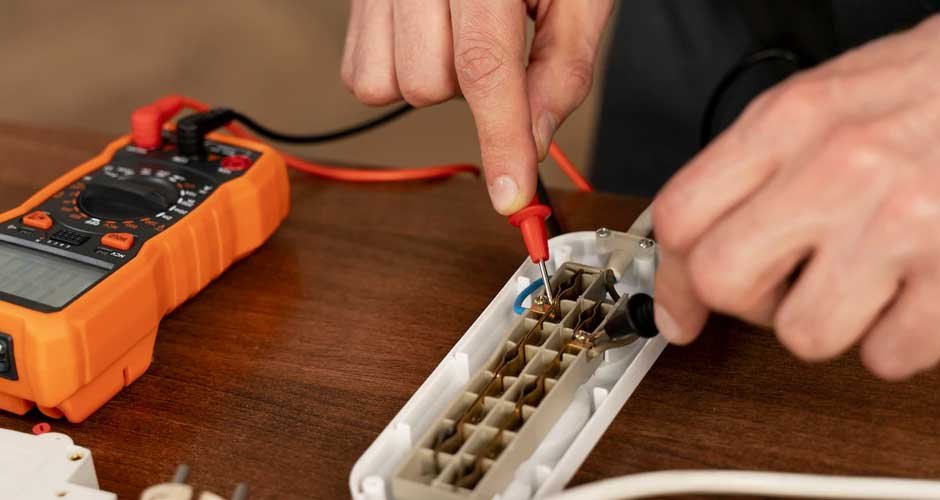A properly functioning electrical panel is critical for the safety of your home or business. To this end, Wired LLC’s electrical panel upgrades might come in handy. This licensed and insured service provider is known for high-quality installations, responsiveness, and excellent customer service. In short, you come FIRST.
The contractor’s experienced electric panel electricians can provide various electrical services, from essential upgrades to complex wiring projects. Here’s a detailed look at the role such experts play…
1. Upgrading Panels
Your electrical panel is designed to handle a particular electrical load. Let’s assume you plan to build a pool, add a hot tub or jacuzzi, upgrade your heating and air conditioning system, or install new electrical appliances. In that case, you’ll need a larger panel or more circuits to accommodate your needs. Otherwise, your appliances may overload your existing panel, causing breakers to trip or create a potential fire hazard.
An electric panel electrician helps by inspecting your existing electrical panel and making necessary upgrades. They can install a larger panel, add more circuits, change out the entire panel if it’s beyond repair, or install a generator or transfer switch. They also check to ensure your wiring is up-to-date and not prone to overheating.
Likewise, outdated panels may require an upgrade. For instance, if your panel contains fuses, have an electrician upgrade it to use circuit breakers. Fuses are considered safety hazards and can cause damage if not replaced with more efficient components.
2. Troubleshooting Electrical Issues
Old electrical panels are likely to show their age in the form of problems like flickering or dimming lights, circuits that don’t work, breakers that trip frequently, and buzzing or humming noises. If you experience such issues, consider calling in an experienced low voltage electrician to troubleshoot the problem.
They can pinpoint wiring issues, replace components if needed, and fix short circuits. Such repairs help keep your home or business safe by preventing fire risks.
3. Ensuring Proper Installation
Electrical panels are complex systems comprising wires and circuits that could make you want to pull your hair out – just by looking at them! Even if you work in the electrical field or have a basic understanding of circuits, it’s advisable to leave the task of installing an electrical panel to a professional.
Your panel electrician understands the intricacies of electrical panels and can ensure a precise and code-compliant installation. For instance, they follow complex diagrams and carefully connect the wires and circuits so that all components work correctly. They also ensure all necessary safety measures are in place – like GFCI outlets around water sources and AFCI breakers to mitigate the risk of electrocution or fire.
Without proper installation, your electrical panel may lead to energy inefficiencies. Your property and life could also be at risk due to shock and fire hazards. Thus, it pays to hire an accredited panel electrician.
4. Maintenance
Even if you’re not currently planning renovations or dealing with electrical issues, it’s advisable to have a panel electrician inspect your system at least annually. That way, you can ensure all connections are tightly secured and the components aren’t damaged or worn out.
Your panel electrician thoroughly inspects the panel for faulty wiring or switches, frayed cables, overloaded or open circuits, defective breakers, and other issues that could lead to electrical problems. Maintenance might also involve:
- Testing the grounding system and other assemblies.
- Checking for rust or corrosion.
- Replacing outdated components.
Such services extend the life of your electrical panel and ensure it functions optimally. The panel electrician is also trained to identify risks associated with aluminum wiring and can recommend upgrades if needed.
Plus, they help ensure you keep up with the latest electrical codes so you’re in the authority’s good books. This might entail reviewing electrical plans for adherence to the local codes and design specifications, marking outdated components, and so on.
5. Promoting Positive Interactions
Panel electricians don’t operate in a vacuum – they work with different people in varying roles. For instance, they interact with clients, other contractors, architects, fellow staff members, and vendors.
Through such interactions, they ensure everything runs smoothly. For instance, they might advise a client on the best panel installation setup for their property or ask coworkers to bring in the right equipment. They also need to be courteous and professional when dealing with clients and vendors so that everyone is on the same page. This helps promote positive relationships, contributing to successful projects and happy customers.
Although these responsibilities don’t fully capture the work of panel electricians, they help provide an overview. And as you’ve established, their role requires lots of skill and experience. Whether your panel needs maintenance or a full rewiring job, hire a well-informed professional to get it right from the onset.



